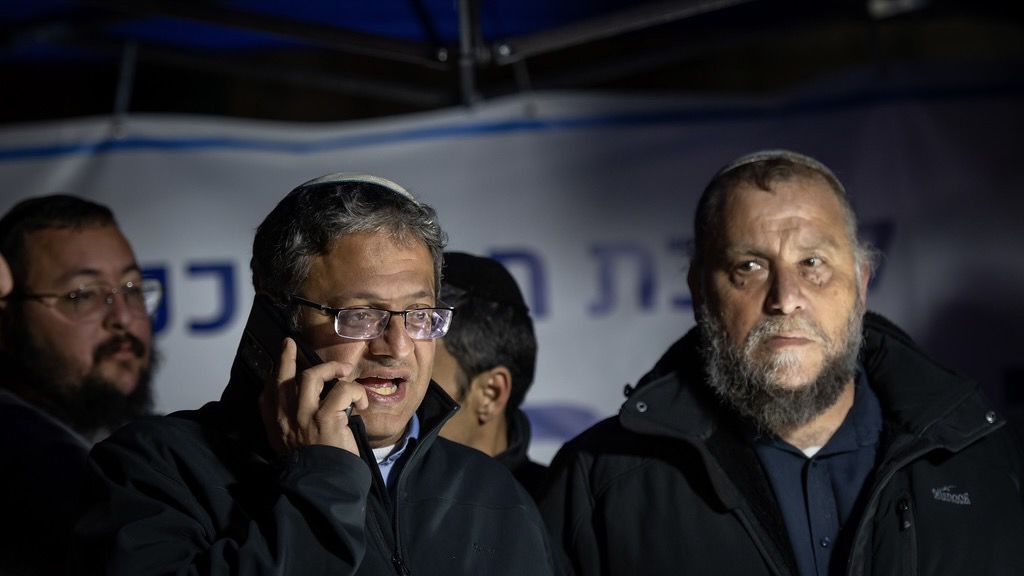Israeli Prime Minister Benjamin Netanyahu has been forced to postpone his government’s judicial reforms following large-scale protests in the country, leading to celebrations of the strength of Israel’s so-called democracy. However, a number of Palestinians have pointed out that this celebration is unjustified as the alleged victory has come at the cost of even more Palestinian lives.
On Monday, following months of protests, Netanyahu announced the postponement of his government’s attempts to pass the judicial reform bills that would give more power to the government and allow it greater control over the country’s judiciary. Protesters claimed that the reforms could lead to fascist rule in the country as the courts are currently the only check-and-balance on the legislature and the executive, and there is no clear separation of powers between the two.
National Security Minister Itamar Ben-Gvir, whose Otzma Yehudit party has six seats in the Israeli parliament, had threatened to withdraw from the governing coalition following the announcement of the delay. However, as the governing coalition holds only 64 seats in the 120-member Knesset, this threat was clearly deemed serious enough by Netanyahu and his Likud party.
As a compromise to Ben-Gvir, Netanyahu signed a deal that would allow the far-right minister to establish a ‘national guard’, under his control, which many predict will be used against the Palestinian population.
The proposed national guard will have 1,800 men and, according to reports, the government has already sanctioned 1 billion Shekel (US$ 280 million) for the force. Although it is not officially determined, it appears most likely that the exercise of its powers will be at the discretion of Ben-Gvir’s Ministry of National Security.
More unrestricted violence over Palestinians in the occupied territories
The Times of Israel, while speculating on the purpose of the force, has noted that “concerns over the force’s mandate have been amplified by questions over the need for such a body, which will seemingly duplicate tasks already carried out by the police and Border Police.”
Israel’s Border Police is mainly deployed in the occupied West Bank and is used to carry out oppressive measures against Palestinians such as raids, extrajudicial killings, and arrests in the name of counterterrorism and riot control.
Ben-Gvir has already talked about merging the Border Police into the National Guard, to be used in the occupied territories, where he wants the security forces to have the right to shoot at those resisting the occupation.
It is also speculated that Ben-Gvir will use his control over the force to suppress popular dissent within Israel, particularly by the Arab minority, given his political leanings.
The Palestinian Authority (PA) has expressed its apprehensions in a statement claiming that the proposed force would be a militia of “racial terror” that “will only serve to target, kill, and torture the undefended Palestinian people, en masse.”
Since the beginning of the year, Israeli occupation forces have killed over 90 Palestinians, including 17 children.
Nour Odeh, former spokesperson of the Palestinian Authority (PA), highlighted that “Netanyahu reached a compromise to stay in power and defuse protests by throwing Palestinians to the wolves: allowing Ben-Gvir, a convicted terrorist settler, to form a militia in the occupied West Bank. Palestinian blood is all it took to protect ‘Israeli democracy.’ How telling.”
Hanan Ashrawi, former member of the PA executive council, also pointed out that “disagreements & disputes are resolved [in Israel] at the expense of the Palestinians, while the extreme racist forces extract substantive concessions in exchange for symbolic delays.”





